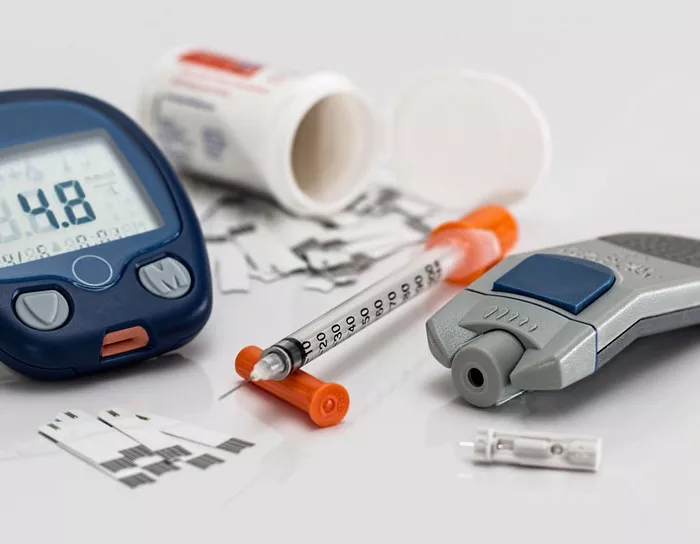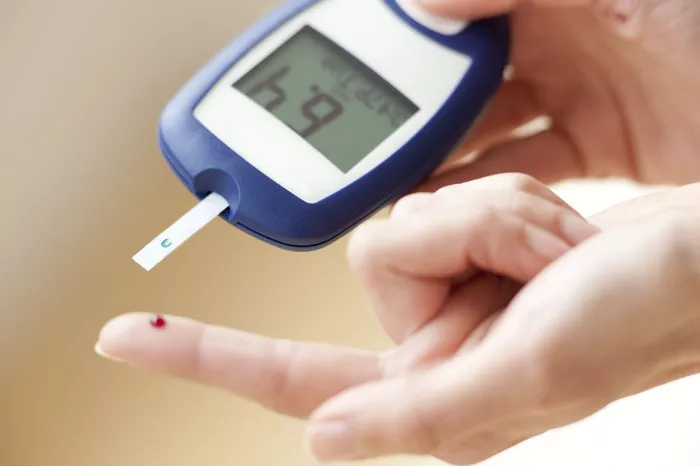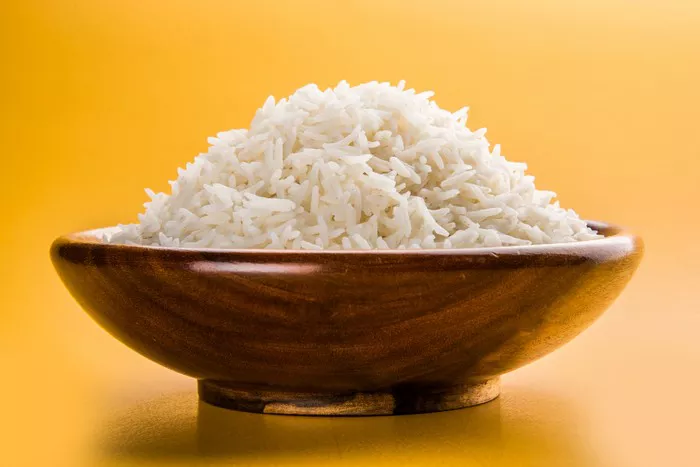Insulin resistance is a condition in which the body’s cells become less responsive to the hormone insulin, leading to elevated blood glucose levels. This condition is a precursor to type 2 diabetes and is often associated with metabolic syndrome, obesity, and other health complications. Managing insulin resistance involves lifestyle changes, including dietary modifications. Understanding which foods to avoid can play a crucial role in managing this condition and improving overall health.
Understanding Insulin Resistance
Insulin is a hormone produced by the pancreas that allows cells to take in glucose from the bloodstream to use for energy. In individuals with insulin resistance, cells in muscles, fat, and the liver don’t respond well to insulin and can’t easily take up glucose from the blood. Consequently, the pancreas produces more insulin to help glucose enter cells, leading to high levels of insulin in the blood, a condition known as hyperinsulinemia. Over time, this can lead to type 2 diabetes, as the pancreas is unable to keep up with the high demand for insulin production.
Diet plays a critical role in managing insulin resistance. Certain foods can exacerbate the condition by causing rapid spikes in blood sugar and insulin levels, promoting inflammation, or contributing to weight gain and obesity, which are key risk factors for insulin resistance.
1. Sugary Foods and Beverages
One of the most important categories of food to avoid with insulin resistance is sugary foods and beverages. These items cause rapid spikes in blood sugar and insulin levels, leading to increased fat storage and exacerbation of insulin resistance.
- Sugary Beverages: Sodas, energy drinks, sweetened coffee, and teas are high in added sugars and have little to no nutritional value. These beverages can cause a rapid increase in blood glucose levels and lead to weight gain.
- Sweets and Desserts: Candy, cookies, cakes, and pastries contain high amounts of sugar and refined carbohydrates. These foods contribute to insulin spikes and provide empty calories that lead to weight gain.
- Fruit Juices: Even though fruit juices contain some vitamins and minerals, they are also high in sugar and lack fiber, which can cause blood sugar levels to rise rapidly.
2. Refined Carbohydrates
Refined carbohydrates are processed foods that have had most of their fiber and nutrients removed. These foods are quickly broken down into glucose, causing rapid increases in blood sugar and insulin levels.
- White Bread and Pasta: Made from refined wheat flour, these products have a high glycemic index (GI) and can lead to sharp increases in blood glucose.
- White Rice: Similar to white bread, white rice is stripped of its fiber, making it a high-GI food that can spike blood sugar levels.
- Breakfast Cereals: Many breakfast cereals, especially those targeted at children, are high in sugar and refined grains, leading to rapid blood glucose spikes.
3. Processed and Fast Foods
Processed and fast foods often contain unhealthy fats, excessive sugars, and refined carbohydrates, all of which can worsen insulin resistance.
- Fast Food: Burgers, fries, and other fast food items are typically high in unhealthy fats, sodium, and calories, contributing to weight gain and insulin resistance.
- Processed Snacks: Chips, crackers, and other processed snacks often contain trans fats, refined grains, and added sugars.
- Frozen Meals: Many frozen meals are high in sodium, unhealthy fats, and refined carbohydrates, making them detrimental to insulin sensitivity.
4. Trans Fats
Trans fats are artificial fats created during hydrogenation, a process that turns liquid oils into solid fats. These fats are associated with increased inflammation, a key factor in insulin resistance.
- Margarine and Shortening: Many brands of margarine and shortening contain trans fats, which are harmful to insulin sensitivity.
- Baked Goods: Commercially baked products like cookies, cakes, and pies often contain trans fats.
- Fried Foods: Foods fried in partially hydrogenated oils, such as donuts and fried chicken, are high in trans fats.
5. High-Fat Dairy Products
While some dairy products can be part of a healthy diet, high-fat dairy products can contribute to weight gain and inflammation, which are detrimental to individuals with insulin resistance.
- Full-Fat Milk and Cream: High in saturated fats, these products can increase caloric intake and contribute to weight gain.
- Cheese: Many types of cheese are high in fat and calories, making them less ideal for those managing insulin resistance.
- Ice Cream: Often high in both sugar and fat, ice cream can cause significant spikes in blood sugar and insulin levels.
6. Alcohol
Alcohol consumption can interfere with blood sugar control and contribute to weight gain, making it problematic for those with insulin resistance.
- Sweetened Alcoholic Drinks: Cocktails and sweetened wines contain added sugars, which can spike blood glucose levels.
- Beer: High in carbohydrates, beer can lead to increased blood sugar levels and weight gain.
- Excessive Alcohol: Drinking large amounts of alcohol can impair liver function, affecting glucose metabolism and insulin sensitivity.
7. High-Sodium Foods
High sodium intake is associated with increased blood pressure and inflammation, which can exacerbate insulin resistance.
- Processed Meats: Bacon, sausage, and deli meats are high in sodium and often contain unhealthy fats.
- Canned Soups and Vegetables: Many canned products are high in sodium, which can contribute to increased blood pressure and inflammation.
- Salty Snacks: Pretzels, chips, and other salty snacks often contain high levels of sodium and unhealthy fats.
Healthy Alternatives and Dietary Strategies
Managing insulin resistance involves not only avoiding certain foods but also adopting a diet rich in nutrients that support insulin sensitivity. Here are some dietary strategies and healthy alternatives:
- Choose Whole Grains: Opt for whole grains like brown rice, quinoa, barley, and whole-wheat products, which have a lower glycemic index and provide fiber, aiding in blood sugar control.
- Incorporate Lean Proteins: Include lean protein sources such as chicken, turkey, fish, legumes, and tofu, which can help maintain muscle mass and promote satiety without causing blood sugar spikes.
- Focus on Healthy Fats: Include sources of healthy fats like avocados, nuts, seeds, and olive oil. These fats can help reduce inflammation and improve insulin sensitivity.
- Eat Plenty of Fiber: Foods high in fiber, such as vegetables, fruits, legumes, and whole grains, slow down the absorption of glucose and help maintain steady blood sugar levels.
- Limit Added Sugars: Read food labels and avoid products with high levels of added sugars. Opt for natural sweeteners in moderation, such as stevia or monk fruit.
- Hydrate with Water: Choose water or unsweetened beverages over sugary drinks. Staying hydrated supports overall metabolic function.
- Moderate Alcohol Consumption: If you choose to drink alcohol, do so in moderation and opt for lower-carbohydrate options like dry wine or spirits mixed with soda water.
Conclusion
Managing insulin resistance requires a multifaceted approach that includes dietary changes, regular physical activity, and maintaining a healthy weight. By avoiding foods that cause rapid spikes in blood sugar and insulin levels, contribute to inflammation, and lead to weight gain, individuals with insulin resistance can improve their health outcomes and reduce their risk of developing type 2 diabetes.
Making informed food choices, focusing on whole, nutrient-dense foods, and limiting intake of processed and sugary items can significantly impact insulin sensitivity and overall metabolic health. As always, it is important to consult with healthcare providers, such as dietitians and doctors, to develop a personalized plan that meets individual health needs and goals.
Related topics:
Is Coffee Good For Insulin Resistance?


























